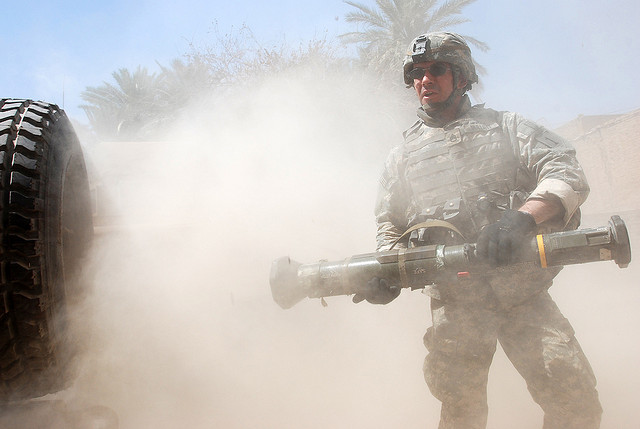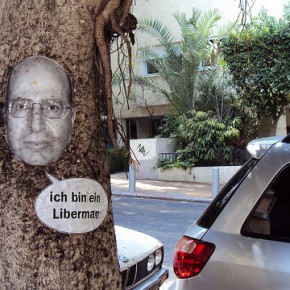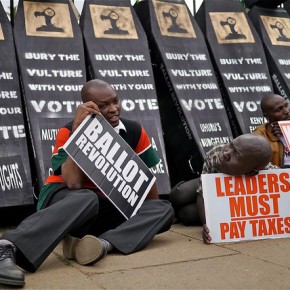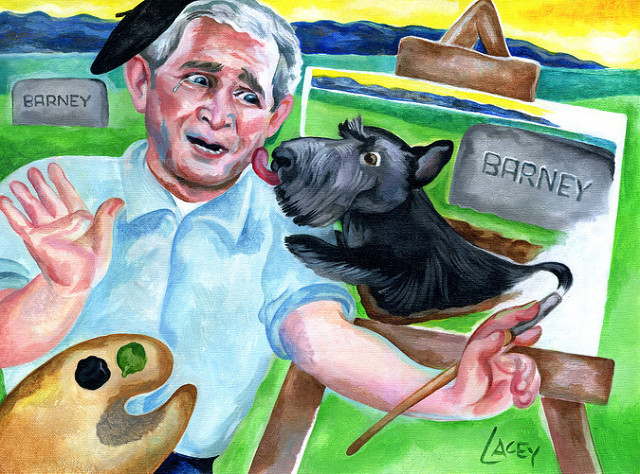I remember the helicopter blades. I have been gazing at ceiling fans and hearing them again. I close my eyes and I am there. I see the helicopters dancing over Baghdad. Basra. Mosul. Kirkuk. I feel the dry heat being momentarily broken by the dusty wind they kick into my face.
Sometimes, people point out to me that I have never been to Iraq. No one from West Asia has ever found this relevant.
The Iraq War was a culturally traumatic moment for Pakistanis. The conflict was the first to be graphically depicted on the internet, and satellite TV. I saw Iraq’s descent into hell in what felt like personal ways. Websites allowed for a meticulous description of the brutal violence, ignored protests, fabricated evidence, and botched imperial administration that defined the period. It also felt as though I was witnessing Pakistani dysfunctions take their imperial conclusions. Even with my limited vision, it felt as though I was there for the end.
Over the years, I have noticed that diasporic Pakistanis have reacted in a number of disparate ways. Some fully accept the suspended worldview of immigrant suburbia. Others have responded by getting politicized, seeing the event, like the Al-Aksa Intifada, as having exposed Western power for what it really is. The war did its part to inspire a militarized dystopia of drone strikes, waterboarding, and illegal cross-border raids being celebrated as a second Austerlitz. It is not uncommon to see young Pakistanis active on issues of human rights, imperialism, and racism that the war helped bring into focus. Neither is it uncommon to see them networking with other West Asian diasporas, in solidarity with the conflict’s worst excess.
This mobilization has also been violent at times. The Iraq War provided a new setting for transnational radical organizations to revitalize themselves. Sometimes, I hear about someone else like me who has been caught in an act of terrorism. Unsurprisingly, they scare all the Americans who speak of domestic radicalization, amongst Muslim communities in the United States.
I understand them, in a way. They also grew up during the War on Terror. They inherited a disgust with American power and consumerism from their immigrant parents. I wonder if a discriminatory experience taught them how much race matters in the West. Maybe they just had a thirst for action and adventure spurred on by popular culture. Or maybe they close their eyes and feel ceiling fans kick sand into their faces.

I reacted in my own way, choosing to travel in Pakistan while meditating on how to channel my revulsion productively. I’ve found myself at ease being around others who approach this dark anniversary in sober reflection. Their thoughts reflect all the subtleties of a country at war.
Minority groups who live in fear of predatory Sunni fundamentalism see their own fears realized in Iraq’s ethnic cleansing. I can relate. I see the same genocidal instinct in both countries, born as a reaction to military violence, American lawlessness, and the social uncertainty of neoliberal economic policies. Some note the hypocrisy of the Bush Administration toppling one military dictatorship, while encouraging an enlightened despotism in General Pervez Musharraf. Many others have grown exhausted with the country’s exploitative civilian elite that coopted the 2007 revolution. They support Musharraf and point to Iraq as an example of Asian Muslims being unable to make democracy work.
Sh’ia have become more likely to highlight Sunni militants and Syrian support for them. Sunni nationalists respond by pointing out Noor al-Maliki’s perceived sectarianism and Iran’s role in the country’s instability. They all seem to agree on one core assumption: the United States was willing to destroy Iraq to steal its oil.
Ten years have passed, and I am gripped with uncertainty. What narratives will take root in which Pakistani communities? And which methods will be used to articulate them? I’ve spent the last few years pondering how the Iraq War helped inspire the idea that all South Asian and Arab Americans are potential terrorists. The NYPD treats Muslim students as walking time bombs. Talk radio hosts continually promote Islamophobia, without censure. All the while, US drones patrol Pakistani skies, randomly picking off militants. Where does this all end?
I only know one thing. For producing this bleakness, the Iraq War will one day be taught as the worst foreign policy decision in American history.
Photographs courtesy of the soldiersmediacenter. Published under a Creative Commons license.





